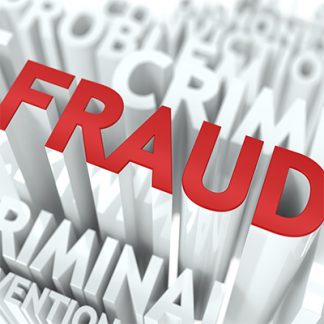Description
SUITABLE FOR:
Director General, Auditor – Generals, General Managers, Finance Directors, Financial Controllers, Treasury Managers, Finance Managers, Accounts Managers, Treasury Analysts, Financial and Management Accountants, Auditors, Financial Analysts, Accounts Supervisors and Accounts Superintendents.
OBJECTIVES:
By the end of the workshop, delegates will have:
- Have developed the skills necessary to strengthen the integrity of their organisations and to reduce corruption.
- Have developed the objectives, strategies and measures required to ensure that accountability is upheld.
- Have a better understanding of the enterprise – wide risk management
- Have knowledge of Best Practices in Auditing (Multinational & NGOs organisation) around the world
- Have knowledge of the techniques used in the conduct of internal and external audits.
- Have a greater understanding of the techniques of measuring financial and operational risk.
- Learn about best practices in developing risk management environment, appetite and policies.
SUMMARY:
The topics covered include:
WEEK ONE – 5 days
- Auditing and the Companies Act
- The rights and duties of an auditor under the Companies Act
- Rules of professional conduct
- Professional responsibility & liability
- The nature, purpose and scope of Auditing
- Audit evidence and internal controls
- Exercises / Case Studies
- Corporate Governance
- Objectives and strategies of governance
- The institution and legislative background
- Corporate governance and value creation
- Accountability and transparency
- Understanding the nature , causes and consequences of corruption and fraud
- Measure to reduce risks from corruption, including transparency and accountability
- Risks from ‘computer fraud’ and the advancement of technology to prevent and detect fraud
- Techniques and fundamental principles used by experienced fraud investigators
- The role of ‘serious fraud office’ in preventing fraud
- Implementing policies and procedures that prevent fraud
- Regulatory environment
- Internal control
WEEK TWO – 5 days
- Money Laundering and the auditors
- Introduction to money laundering
- International Development of law and regulations
- The role of Financial Action Task Force (FATF)
- Record keeping and money laundering reporting officer’s annual report
- Exercises / Case Studies
- Risk Management and the Auditors
- Definitions of Operational Risk, Credit and Market Risk, Liquidity Risk
- Best practices in developing risk management, environment , appetite and policies
- Liquidity risk:
- Asset liquidity risk, funding liquidity risk
- Internal Auditing – Reliance on Internal Audit
- Lessons from financial disasters
- G – 30 report



